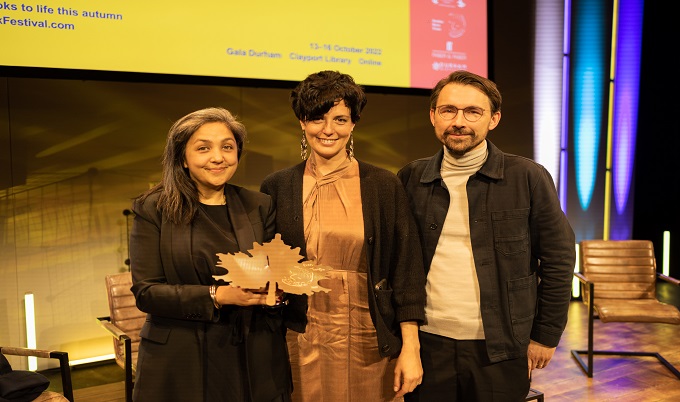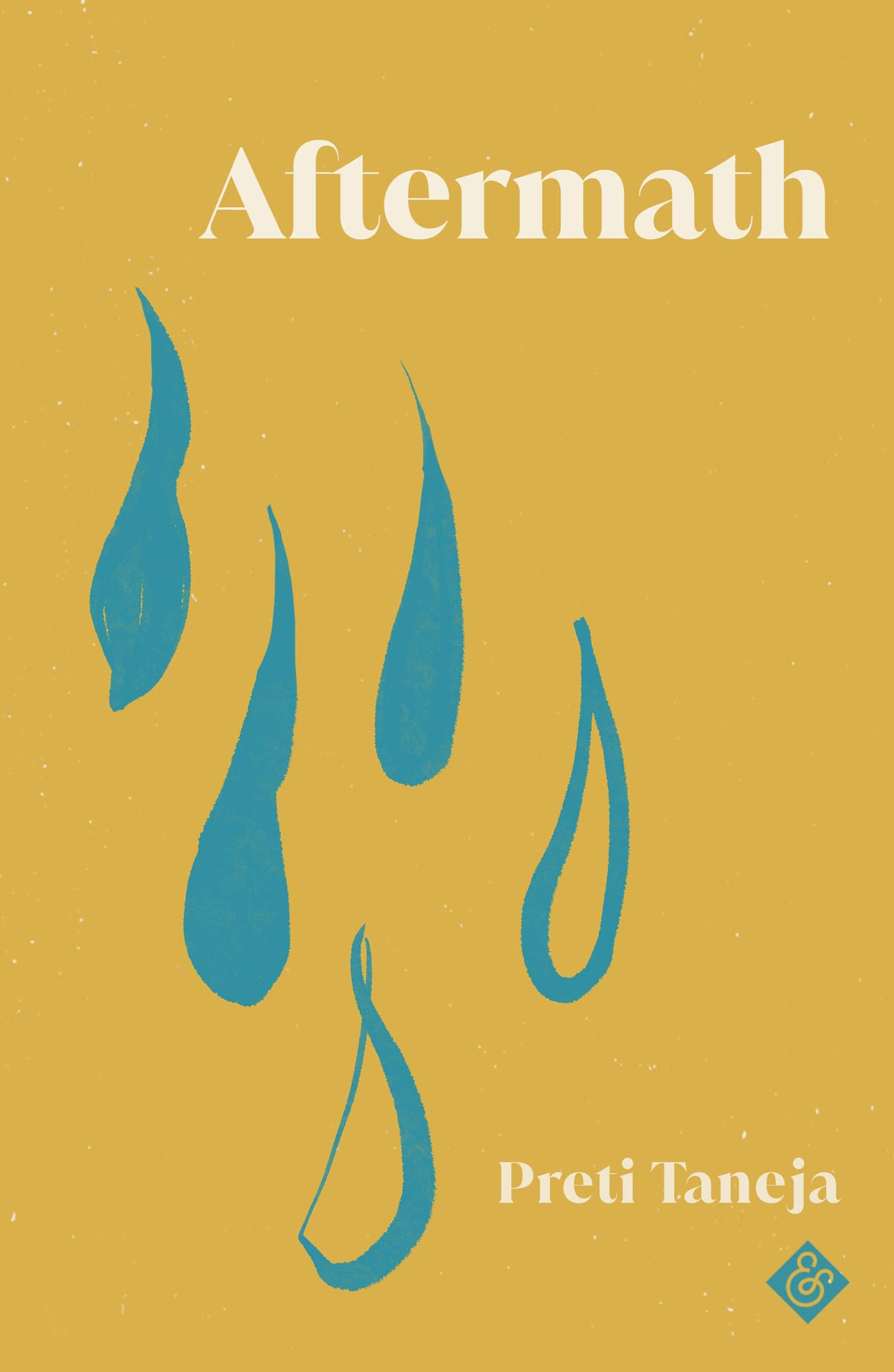Gordon Burn prize
Preti Taneja wins the Gordon Burn Prize 2022
Published on: 14 October 2022
Professor Preti Taneja has won the tenth annual Gordon Burn Prize for Aftermath, her unflinching work of narrative non-fiction blurring genres and form to understand terror, trauma and grief.
The Gordon Burn Prize celebrates the year’s most dazzlingly bold and forward-thinking fiction and non-fiction written in English.
Aftermath strives to make sense of the London Bridge terror attack in 2019. Usman Khan was a convicted terrorist who spent eight years in prison and went on to kill two people, Saskia Jones and Jack Merritt, at an event marking the anniversary of a prison programme he had participated in. Preti Taneja had taught Khan in prison and Jack Merritt was her colleague. Aftermath is a profound attempt to regain trust after violence and rebuild faith in human compassion: a powerful recommitment to activism and radical hope.
Preti Taneja is a professor of World Literature and Creative Writing at Newcastle University. Her first novel, We That Are Young, a translation of King Lear set in contemporary India, won the Desmond Elliott Prize 2018.
Professor Taneja said: "As a writer of fiction and nonfiction, Gordon Burn never shied away from the most difficult subjects. He was dedicated to finding the best form for his work, experimenting not only to achieve affect, but to explore the ethics of writing about those subjects through the writing itself.
"Aftermath is the hardest book I hope I’ll ever write. For some, it’s a controversial book. For others, it’s simply about the obvious harms of the endemic racism of a UK education system that does not teach colonial history properly; the biases in the school-to-prison pipeline and in the criminal justice system; and the corresponding narratives of policing, safety, and educational saviourism we cling to, but which fail to keep anyone safe.
"To have the book, which was written in the immediate aftermath of terrible violence, recognised as the winner in the tradition of Gordon Burn, among a set of writers whose work I so admire, means a great deal to me. I feel very grateful to my publishers, the readers, booksellers, New Writing North, the Prize and its judges for coming on this journey with me, and for not looking away."

Praise from the judges
Aftermath was selected by a panel of judges, made up of sportswriter and columnist Jonathan Liew, author Denise Mina (chair), broadcaster Stuart Maconie, artist and poet Heather Phillipson and writer Chitra Ramaswamy.
Denise Mina, chair of the judges, said: ‘Aftermath is an extraordinary story of fractured narratives and lives that takes us into a world barely glimpsed in headlines and outrage.’
Jonathan Liew said: ‘Congratulations to Preti Taneja on a staggering piece of work. This was a cruelly tough award to judge, not simply because of the high overall standard but the astonishing breadth of submissions. But Aftermath stood out right from the start of the process: a book that knocks the breath out of you, and not always in a good way. It’s harrowing in parts; heartbreaking in others; humane throughout. But what impressed me above all was its artistic courage: the blurring of form and genre, the refusal to hold the reader’s hand or offer simple moral nostrums, the admission that while writing can expand our world, there are limits to what it can achieve. I wish this book every success and also want to pay tribute to the other richly talented authors on the shortlist.’
Chitra Ramaswamy said: ‘Aftermath is a beautifully crafted and carefully judged examination of an atrocity and the structures and systems that surround it. I’m blown away by Preti Taneja’s writing: both the moral integrity of her approach and her fractured, minimalist prose. She has written a radical, profound, profoundly fractured and completely unique work of narrative nonfiction that has stayed with me. I haven’t read anything quite like it, and I can’t think of a more deserving winner of the Gordon Burn Prize.’
Heather Phillipson said: ‘Aftermath is a brutal and bewildering attempt to think through the unthinkable. Preti Taneja sets out the highest possible stakes for herself as a writer and, by implication, for you as a reader. Incandescent and unnerving.’
Stuart Maconie said: ‘A raw, highly personal perspective on a brutal and shocking event.’

The Gordon Burn Prize was awarded for its tenth year at Durham Book Festival.
Cllr Elizabeth Scott, Cabinet member for economy and partnerships at Durham County Council, said: “I’d like to say a big congratulations to Preti as the winner of this year’s Gordon Burn Prize, with her poignant and thoughtprovoking storytelling of a heart-breaking event standing out with judges. Durham Book Festival aims to shine a light on writing talent from the North East and globally, so we’re proud to be able to host this internationally important prize here in County Durham and demonstrate our commitment to supporting literature and creativity as The Culture County.”
The Gordon Burn Prize remembers the late author of novels including Fullalove and Born Yesterday: The News as a Novel, and non-fiction including Happy Like Murderers: The Story of Fred and Rosemary West and Best and Edwards: Football, Fame and Oblivion. The prize seeks to celebrate those who follow in Gordon Burn’s footsteps by recognising literature that is fearless in both ambition and execution. The works recognised often make the reader think again, playing with style or genre, pushing boundaries or diverging from the mainstream literary culture.
Previous winners of the Gordon Burn Prize include Hanif Abdurraqib, who won in 2021 for his collection of essays, A Little Devil in America: Notes in Praise of Black Performance; Peter Pomerantsev in 2020 for This Is Not Propaganda, his study on the war against reality; David Keenan in 2019, for his novel For the Good Times, set during the height of the Troubles in 1970s Belfast; Jesse Ball in 2018 for Census, his fable inspired by his late brother; and Denise Mina in 2017 for her true crime novel The Long Drop.
Press release adapted with thanks to New Writing North



